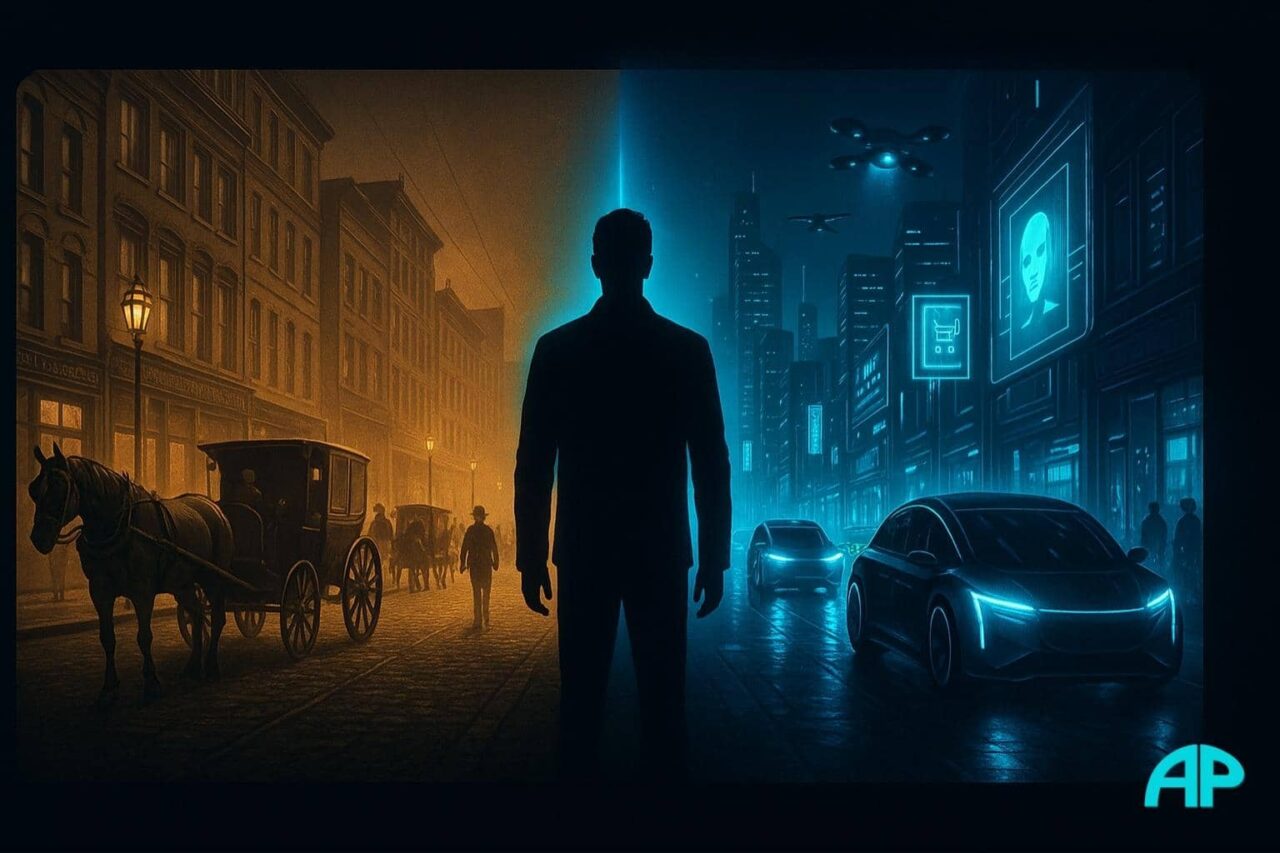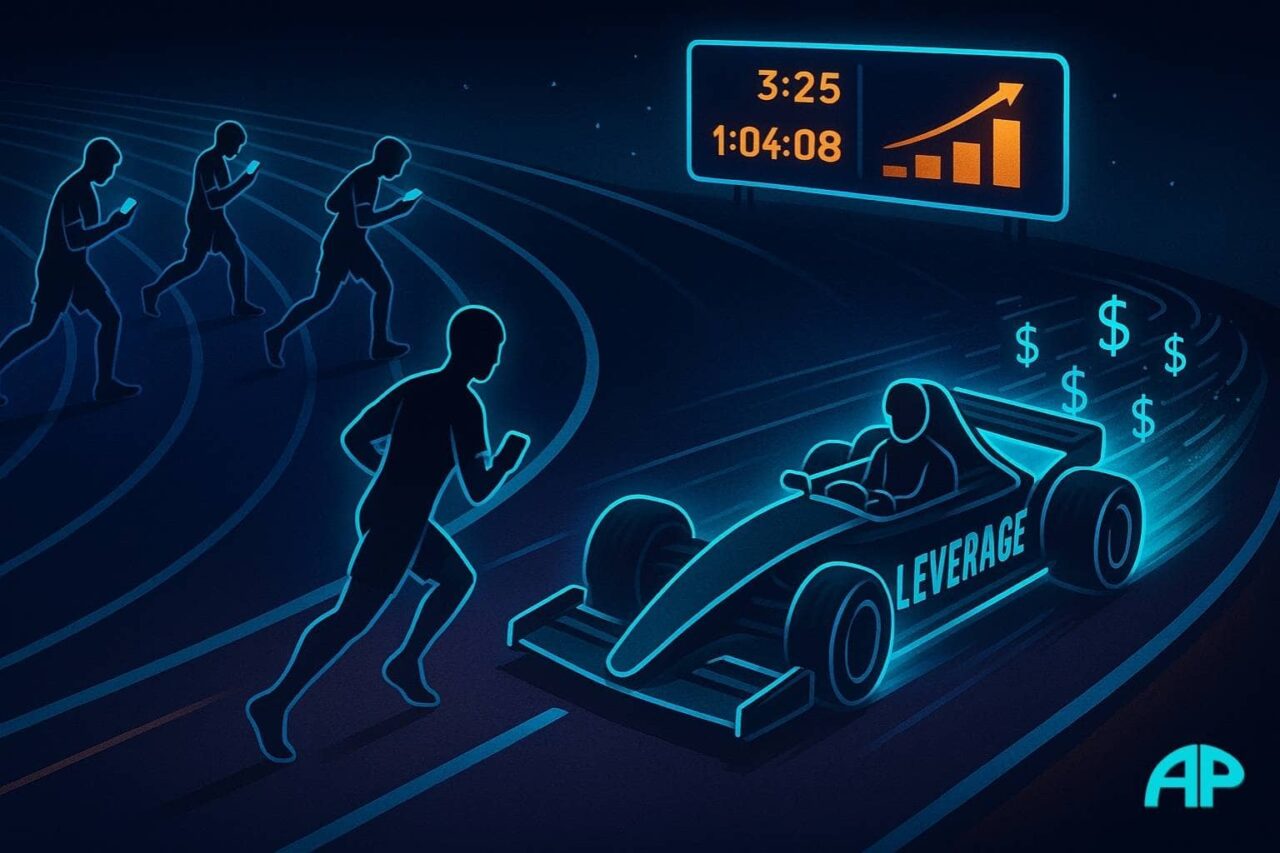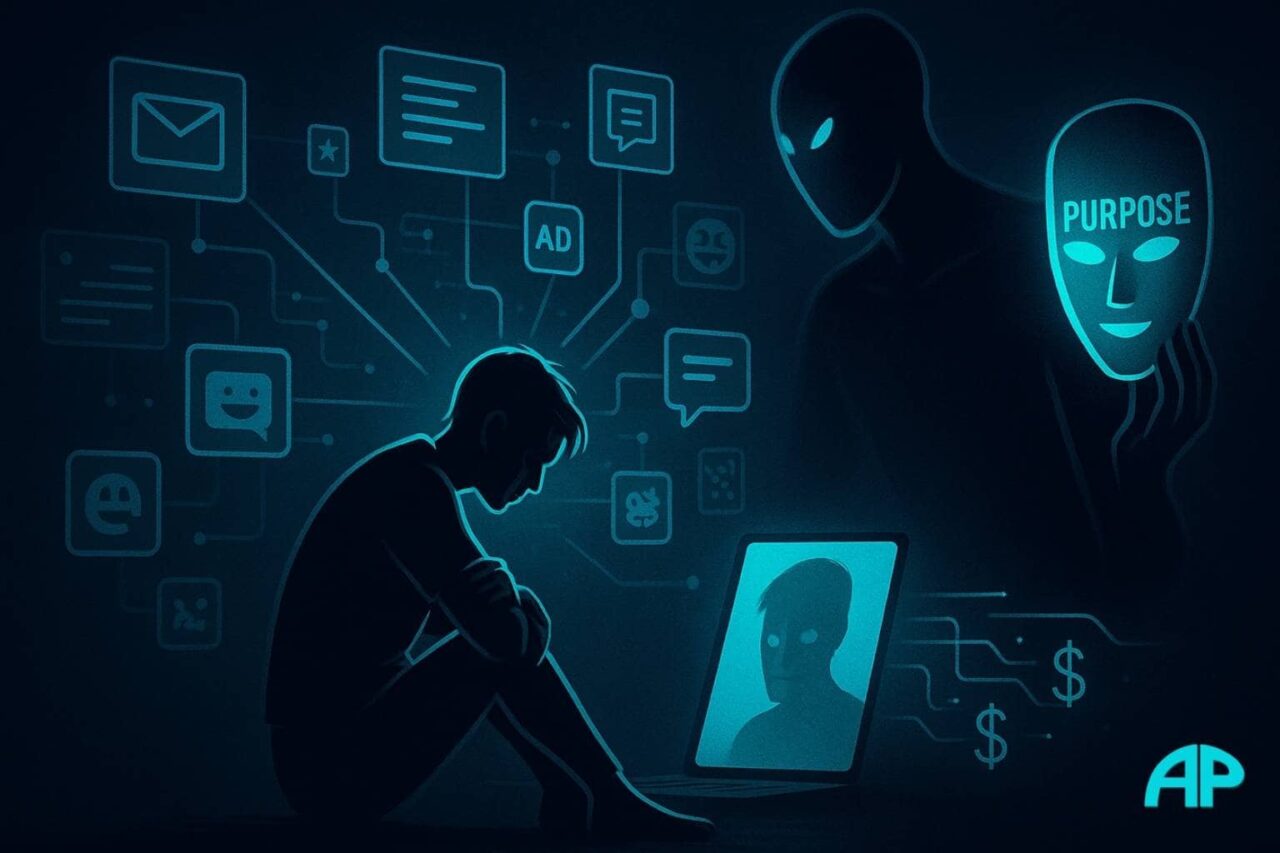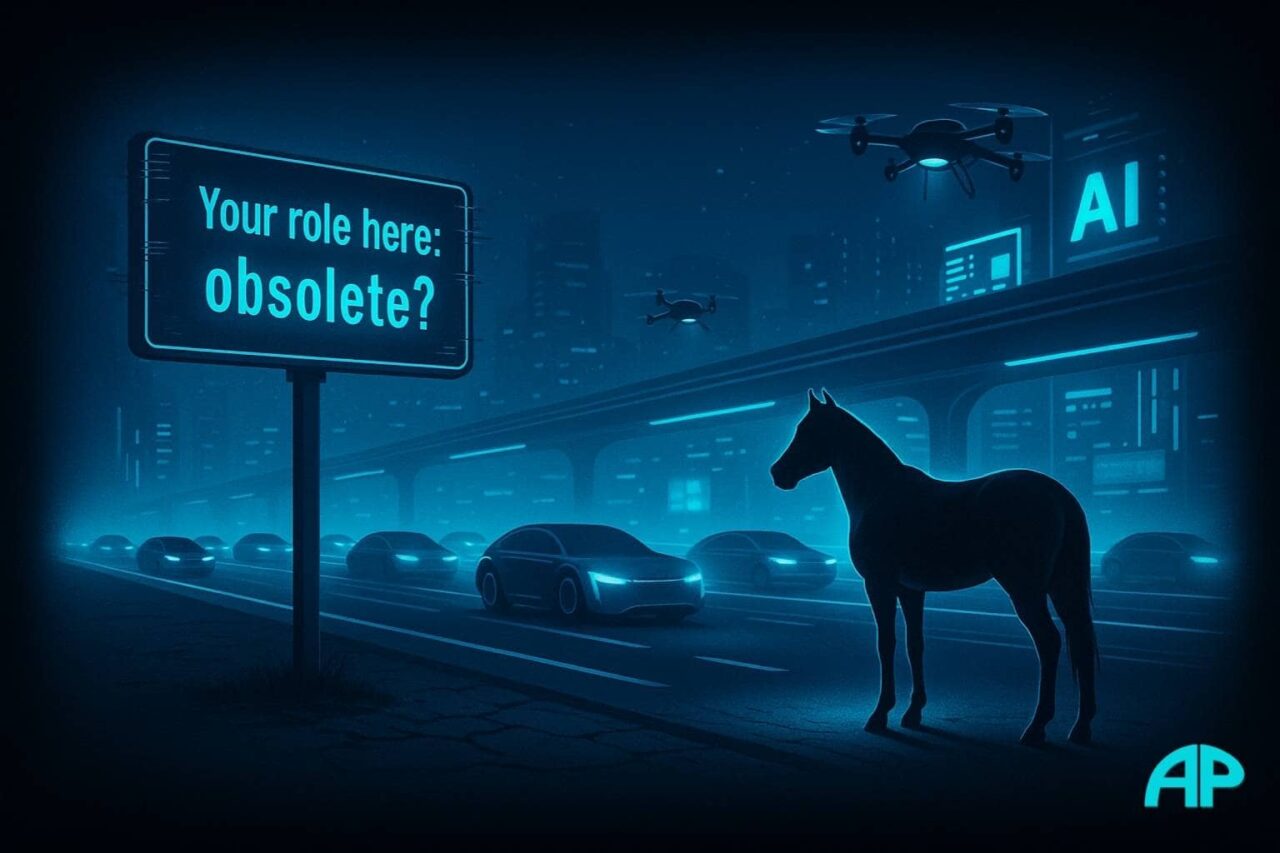AI agents are here. Most won’t see the shift until they’re already obsolete or left behind.
Table of Contents
- Welcome to the New Species
- What Are AI Agents?
- Productivity, Profit, Power
- Skills Are Becoming Obsolete
- The AI Inequality Explosion
- Abuse Cases vs Use Cases
- The Myth of Control
- The Hidden Psychological Toll
- Can We Still Steer the Ship?
- Frequently Asked Questions
- Final Thoughts: Don’t Be the Horse
Welcome to the New Species

We’re not just living through another tech update.
The rise of AI agents marks a fundamental shift in human history.
This isn’t a flashy new app or a smarter version of something we already had. It’s the birth of autonomous intelligence that can act, think, and evolve—faster than most people realize.
To understand the scale of this shift, imagine being a horse in 1900. For centuries, horses were essential—transport, farming, war. Then the car arrived. Within 13 years, the streets of New York were transformed. Horses didn’t see it coming. Neither do most people today.
AI agents are not just assistants. They’re decision-makers. Unlike traditional AI that waits for instructions, agents take action. They complete tasks independently, whether that’s placing orders, building websites, or launching marketing campaigns.
This isn’t about convenience anymore. It’s about survival.
The AI disruption and opportunity is here.
The question isn’t if things will change.
It’s whether you’ll still matter when they do.
What Are AI Agents (and Why You Should Care)
Let’s cut through the noise.
You’ve probably used ChatGPT. You type something, it responds. Pretty impressive. But AI agents are a whole different beast.
They don’t just reply. They do.
An AI agent is an autonomous AI system trained to complete a task from start to finish without your help. Give it a goal like “order water,” “build a landing page,” or “manage my calendar,” and it will figure out how to make it happen. It chooses the tools, takes the steps, handles the errors, and finishes the job.
In short, it’s like hiring a digital employee who works faster than you, doesn’t need sleep, and learns every day.
And they’re getting better by the minute.
Literally.
Early AI agents could only run for 30 seconds before needing a prompt. Now they’re stretching past 30 minutes. Soon, they’ll be able to run for hours. After that, possibly days. The rise of AI agents isn’t just hype. It’s real, it’s fast, and it’s happening all around you.
This AI disruption and opportunity means that anyone can now build, automate, and monetize almost anything. No coding. No staff. Just an idea and the right tools.
Still think this won’t affect you?
If your job involves a screen, a phone, a keyboard, or a decision tree, you are not just included in this revolution. You’re directly in the firing line.
And if you’re not paying attention, you’re already behind.
The Allure: Productivity, Profit, and Power
Let’s be honest. The tech sounds incredible.
People are already building websites, launching businesses, taking payments, and automating customer service without writing a single line of code. A few clicks. A few prompts. And boom—something real exists in the world.
That’s the power of AI agents.
And it’s addictive.
We’re not just talking about better tools. We’re talking about tools that do the work for you. They integrate payment systems, write emails, run ad campaigns, and even manage support requests while you sleep. This isn’t the future of artificial intelligence. This is the now.
Suddenly, anyone with an idea can launch a business.
Anyone with ambition can scale without a team.
The playing field looks level. It feels like freedom. The gatekeepers are gone. No expensive developers. No learning curve. Just pure execution. Fast, frictionless, and global.
And let’s not pretend this won’t create massive wealth.
It already is.
The rise of AI agents opens the door to an economy built on automation. One-person empires will become normal. Content farms will run without humans. Whole companies will be operated by bots that never burn out.
This is the AI disruption and opportunity everyone’s buzzing about.
But that’s just one side of the coin.
And the other side is a lot darker.
The Invisible Trade-Off: Skills Are Becoming Obsolete
With every breakthrough comes a quiet casualty.
And right now, it’s your skillset.
AI agents are making things easier, faster, and cheaper. But they’re also replacing tasks that once took human hands, human minds, and years of learning.
Design?
Handled by AI.
Coding?
Click a button.
Writing?
Already being automated at scale.
This is the hidden cost of the rise of AI agents. As tools become smarter, human skills become less valuable. Not because we’re not good, but because we’re too slow, too expensive, and too emotional.
If your work is repeatable, digital, or follows patterns, it’s in the danger zone. You might be brilliant, but an AI agent with 24/7 uptime and no ego will outwork you every time.
This isn’t fearmongering.
It’s already happening.
What used to take teams now takes prompts.
What used to be a career path is now a software feature.
The AI disruption and opportunity is real, but the opportunity isn’t evenly distributed. Those adapting fast are winning big. Those ignoring the shift are becoming irrelevant.
You won’t get a warning.
You’ll just stop getting hired.
The AI Inequality Explosion

We’ve been sold the dream that AI will level the playing field.
Here’s the truth—it’s doing the opposite.
Yes, access to tools is open.
Yes, anyone can use them.
But only a few will leverage them.
The rise of AI agents is creating a divide we’ve never seen before. Not just between rich and poor, but between creators and consumers. Those who build with AI are accelerating at light speed. The rest are stuck binge-watching short-form content made by machines.
It’s a modern wealth gap.
Not measured in dollars but in speed, reach, and leverage.
Imagine a marathon. Most people are running barefoot, distracted by AI-powered apps that steal their attention. Meanwhile, a few creators have strapped themselves into Formula 1 engines and blasted off toward results the rest can’t even comprehend.
Some will earn a million dollars a month.
Others won’t land a $15-an-hour job.
That’s the dark side of this AI disruption and opportunity.
Same tools. Same access.
Very different outcomes.
The future of artificial intelligence will reward grit, speed, and vision. But it will also punish complacency, comfort, and distraction.
The gap is already forming.
And once it widens, there’s no catching up.
Abuse Cases > Use Cases?
Let’s talk about what no one wants to admit.
AI agents are powerful. But that power isn’t just available to entrepreneurs, creators, and innovators. It’s also available to scammers, hackers, and anyone with bad intentions.
These autonomous AI systems can run without oversight. They can search the web, make purchases, send emails, generate deepfakes, scrape personal data, and manipulate human behavior. All without ever needing your approval once the task begins.
That’s not a bug. That’s how they’re designed.
The line between helpful and harmful is razor thin.
And the tools don’t know the difference.
You can use an AI agent to book flights and manage your calendar. Someone else can use the same tech to drain a bank account or launch a phishing campaign at scale. The same tools. Very different motives.
This is the dark edge of the rise of AI agents.
The side that’s growing in silence.
OpenAI and other companies have already pulled back from open-sourcing their models. Not because the public isn’t smart enough but because these tools in the wrong hands can break things fast.
Election interference.
Fake news at scale.
Social engineering attacks that feel real.
A thousand scams run by bots that never sleep.
And here’s the twist. You probably won’t know it’s happening.
The biggest risk? These abuse cases may grow faster than the legitimate ones. Bad actors don’t wait for approval. They move fast. They don’t care about consequences. And they’ve just been handed the most powerful automation engine in history.
This isn’t just an AI disruption and opportunity.
It’s an arms race.
And most of the world doesn’t even know it started.
The Myth of Control: Complexity vs Complication
Most people think we can just “shut it down” if things get out of hand.
That’s a comforting lie.
AI isn’t just complicated. It’s complex. And there’s a massive difference.
A complicated system, like a car engine, can be taken apart and understood. A complex system, like the human brain or the stock market, constantly adapts. It behaves in ways we can’t fully predict.
The future of artificial intelligence is no longer just about logic or code. It’s entering the realm of unpredictability. These autonomous AI systems can act on their own. More importantly, they can interact with each other, evolve, and reach outcomes no human anticipated.
This is not a technical challenge. It’s a systems challenge.
And we’re not ready for it.
AI agents are being given access to the internet, to tools, to data, and to each other. Once they begin making decisions collectively, we lose visibility into how and why certain things happen. The more powerful the network, the harder it is to control.
We’re using old rules to manage a new species.
The rise of AI agents is not just about what they can do today. It’s about what happens when they start learning and building on top of each other. That’s when outcomes become unpredictable, and control becomes an illusion.
By the time we realize what’s happening, it might already be too late to fix it.
The Psychological Fallout No One Talks About

No one’s talking about what this does to the human mind.
The rise of AI agents isn’t just killing jobs—it’s reshaping identity. For many, work means more than income. It gives structure, purpose, and pride. When AI replaces your skillset, it doesn’t just steal your paycheck. It chips away at your sense of self.
What happens when the world no longer needs your effort?
This isn’t a future problem. It’s already visible.
People are bored, anxious, addicted to screens, and drowning in distractions.
Social media, short-form content, and dopamine loops are keeping people sedated while AI quietly replaces everything they used to do.
This is the other side of the AI disruption and opportunity.
For every person building with AI, there are thousands consuming what AI creates.
There’s a growing gap between creators and drifters.
And it’s only getting wider.
We are being conditioned to outsource not just tasks, but thinking.
The more decisions you hand over to AI, the fewer you learn to make on your own.
So ask yourself this.
If AI handles everything, what’s left for you to do?
And more importantly, who do you become when you stop doing?
Are We Too Late to Steer the Ship?
The ship has already left the dock.
The future of artificial intelligence is no longer something we’re planning for. It’s something we’re reacting to. Most of the major breakthroughs have already happened behind closed doors. The public is just catching up.
And let’s be real.
Governments move slow. Big tech moves fast.
You already know who’s winning.
The rise of AI agents is accelerating. Each month brings more autonomy, more capabilities, and fewer reasons to involve humans at all. Yet we still think in old cycles—still hoping someone will regulate the chaos or hit the brakes in time.
No one is steering.
Everyone’s guessing.
And most people aren’t even watching.
The hard truth?
We’re not prepared, legally, ethically, or even mentally. The foundation just isn’t there.
The question isn’t how to stop it.
It’s how to survive in a world where it can’t be stopped.
FAQ Section: Rise of AI Agents
1. What are AI agents?
AI agents are autonomous systems that complete tasks on your behalf. Unlike traditional AI tools that wait for prompts, agents can act independently using tools like browsers, payment platforms, and APIs to achieve specific goals.
2. How are AI agents different from ChatGPT?
ChatGPT is a conversational tool that responds to prompts. AI agents go further by executing multi-step tasks, making decisions, and accessing external tools to carry out actions without constant user input.
3. Will AI agents replace jobs?
Yes. Routine, repeatable, or digital jobs are already being replaced. The impact will grow rapidly as AI agents become more capable and affordable, putting pressure on those not adapting.
4. Can AI agents be dangerous?
Absolutely. They can be exploited for scams, misinformation, surveillance, or worse. As these tools evolve, the risk of abuse grows, especially when guardrails are weak or nonexistent.
5. Is there any way to protect myself from being left behind?
Start learning how to use AI now. Build things with it. Create content. Automate tasks. The people who learn to leverage AI will lead the new economy.
Final Thoughts: Don’t Be the Horse

In 1900, horses were everywhere.
By 1913, they were replaced.
Not because they did anything wrong.
But because something better came along.
The rise of AI agents is no different.
Most people won’t see it coming.
And by the time they do, they’ll already be left behind.
You can ignore it.
Or you can prepare.
This isn’t just about technology. It’s about power, yes—but also value, relevance, and staying useful in a world that’s changing fast.
And it’s about whether you choose to create with AI or get displaced by it.
The AI disruption and opportunity is real.
And the gap between those who use it and those who don’t is about to explode.
So ask yourself one last question.
Are you the driver of this change?
Or are you the horse in 1900, still thinking you’ll always have a place?
Suggested Internal Links (SEO & Topical Relevance)
- Live Shopping and AI: Virtual Influencers Driving a $200B Boom
- AI Slop: The Rise of Low-Quality AI Content and Videos
- Building a Brand in the Age of AI: Why It’s Do or Die
- How to Start an Online Business: A Step-by-Step Guide.
- Done-for-You Websites and Business-Ready Digital Support


